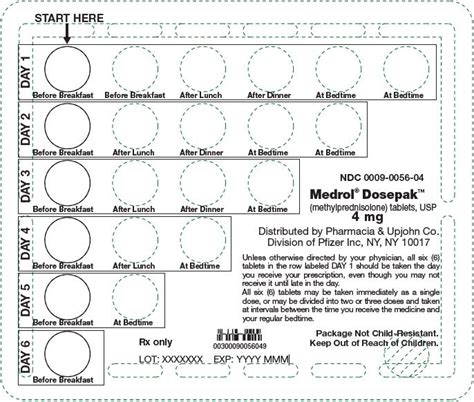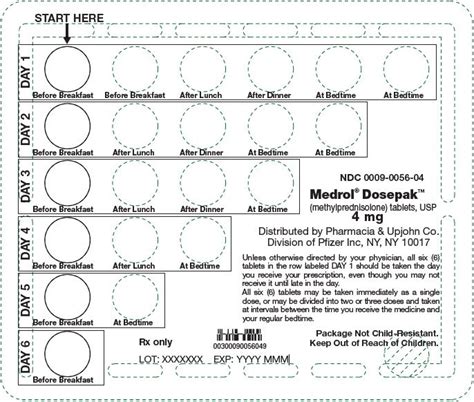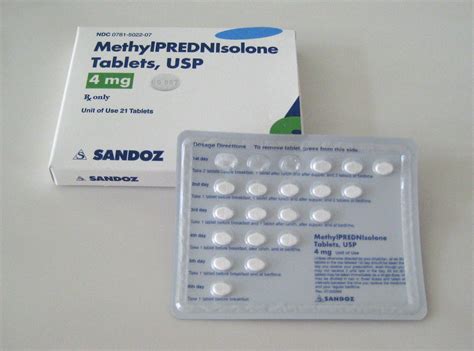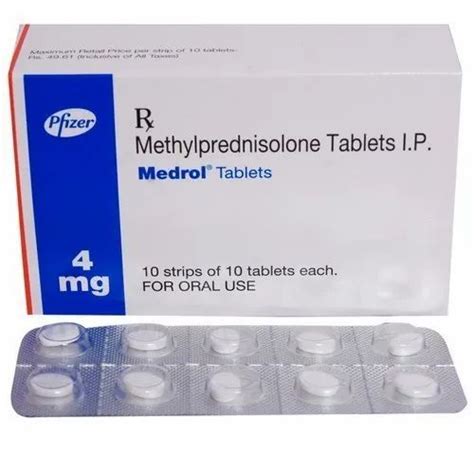Intro
Discover Medrol medication uses, a corticosteroid for inflammation, allergic reactions, and immune system disorders, with applications in arthritis, asthma, and skin conditions, offering relief and treatment options.
Medrol, also known as methylprednisolone, is a corticosteroid medication that has been widely used for various medical conditions. The importance of understanding the uses and benefits of Medrol cannot be overstated, as it has the potential to significantly improve the quality of life for individuals suffering from certain diseases. In this article, we will delve into the world of Medrol, exploring its mechanisms, benefits, and potential side effects. Whether you are a healthcare professional or simply an individual looking to learn more about this medication, this article aims to provide a comprehensive overview of Medrol and its uses.
The discovery of corticosteroids like Medrol has revolutionized the treatment of various inflammatory and autoimmune conditions. By mimicking the effects of cortisol, a hormone produced by the adrenal gland, Medrol helps to reduce inflammation and suppress the immune system. This makes it an effective treatment option for a range of conditions, from asthma and allergies to rheumatoid arthritis and lupus. As we explore the uses of Medrol, it becomes clear that this medication has the potential to greatly improve the lives of individuals suffering from these conditions.
The versatility of Medrol is one of its most significant advantages. It can be administered orally, intravenously, or via injection, making it a convenient treatment option for individuals with varying needs. Additionally, Medrol is available in a range of formulations, including tablets, capsules, and suspensions, which can be tailored to meet the specific needs of each patient. As we will see, the uses of Medrol are diverse and far-reaching, making it a valuable medication in the treatment of various medical conditions.
What is Medrol Used For?

Medrol is used to treat a wide range of conditions, including inflammatory and autoimmune disorders. Some of the most common uses of Medrol include the treatment of asthma, allergies, and rheumatoid arthritis. It is also used to treat lupus, multiple sclerosis, and other conditions that involve inflammation and immune system dysfunction. By reducing inflammation and suppressing the immune system, Medrol helps to alleviate symptoms and improve quality of life for individuals suffering from these conditions.
Medrol for Asthma and Allergies
Medrol is often used to treat asthma and allergies, as it helps to reduce inflammation and prevent allergic reactions. By suppressing the immune system, Medrol prevents the release of histamine and other chemicals that contribute to allergic symptoms. This makes it an effective treatment option for individuals with severe allergies or asthma. Additionally, Medrol can be used to treat allergic reactions, such as hives and itching, which can be caused by a range of factors, including food allergies and insect bites.Benefits of Medrol

The benefits of Medrol are numerous and well-documented. By reducing inflammation and suppressing the immune system, Medrol helps to alleviate symptoms and improve quality of life for individuals suffering from various medical conditions. Some of the most significant benefits of Medrol include its ability to reduce pain and inflammation, improve respiratory function, and prevent allergic reactions. Additionally, Medrol has been shown to be effective in treating a range of conditions, from autoimmune disorders to inflammatory diseases.
How Medrol Works
Medrol works by mimicking the effects of cortisol, a hormone produced by the adrenal gland. By binding to glucocorticoid receptors, Medrol helps to reduce inflammation and suppress the immune system. This makes it an effective treatment option for conditions characterized by inflammation and immune system dysfunction. Additionally, Medrol has been shown to have anti-inflammatory effects, which can help to reduce pain and swelling associated with various medical conditions.Side Effects of Medrol

While Medrol is generally well-tolerated, it can cause a range of side effects, particularly when taken at high doses or for extended periods. Some of the most common side effects of Medrol include weight gain, mood changes, and insomnia. Additionally, Medrol can cause more serious side effects, such as osteoporosis, cataracts, and glaucoma. It is essential to weigh the benefits and risks of Medrol before starting treatment, as individual results may vary.
Risks and Contraindications
Medrol is contraindicated in individuals with certain medical conditions, including fungal infections, tuberculosis, and herpes simplex. Additionally, Medrol should be used with caution in individuals with diabetes, hypertension, and osteoporosis, as it can exacerbate these conditions. It is essential to discuss the risks and benefits of Medrol with a healthcare professional before starting treatment, as individual results may vary.Medrol Dosage and Administration

The dosage and administration of Medrol vary depending on the condition being treated and the individual patient's needs. Medrol can be administered orally, intravenously, or via injection, and it is available in a range of formulations, including tablets, capsules, and suspensions. The typical dosage of Medrol ranges from 4 to 48 mg per day, although this may vary depending on the specific condition being treated.
Medrol Interactions
Medrol can interact with a range of medications, including anticoagulants, antihypertensives, and anticonvulsants. Additionally, Medrol can interact with certain foods and substances, such as grapefruit juice and St. John's Wort. It is essential to discuss potential interactions with a healthcare professional before starting treatment with Medrol, as individual results may vary.Medrol and Pregnancy

Medrol can be used during pregnancy, although it is essential to weigh the benefits and risks before starting treatment. Medrol has been shown to cross the placenta, and it may affect fetal development. However, in some cases, the benefits of Medrol may outweigh the risks, particularly for individuals with severe medical conditions. It is essential to discuss the risks and benefits of Medrol with a healthcare professional before starting treatment during pregnancy.
Medrol and Breastfeeding
Medrol can be used during breastfeeding, although it is essential to exercise caution. Medrol has been shown to pass into breast milk, and it may affect infant development. However, in some cases, the benefits of Medrol may outweigh the risks, particularly for individuals with severe medical conditions. It is essential to discuss the risks and benefits of Medrol with a healthcare professional before starting treatment during breastfeeding.Conclusion and Final Thoughts

In conclusion, Medrol is a versatile and effective medication that has been used to treat a range of medical conditions. By reducing inflammation and suppressing the immune system, Medrol helps to alleviate symptoms and improve quality of life for individuals suffering from various diseases. While Medrol can cause side effects, particularly when taken at high doses or for extended periods, the benefits of this medication often outweigh the risks. As we have seen, the uses of Medrol are diverse and far-reaching, making it a valuable medication in the treatment of various medical conditions.
We invite you to share your thoughts and experiences with Medrol in the comments below. Have you used Medrol to treat a medical condition? What were your results? Do you have any questions or concerns about Medrol? We encourage you to engage with our community and share your knowledge and expertise.
What is Medrol used for?
+Medrol is used to treat a range of medical conditions, including inflammatory and autoimmune disorders, such as asthma, allergies, and rheumatoid arthritis.
How does Medrol work?
+Medrol works by mimicking the effects of cortisol, a hormone produced by the adrenal gland, to reduce inflammation and suppress the immune system.
What are the side effects of Medrol?
+Medrol can cause a range of side effects, including weight gain, mood changes, and insomnia, particularly when taken at high doses or for extended periods.
Can Medrol be used during pregnancy and breastfeeding?
+Medrol can be used during pregnancy and breastfeeding, although it is essential to weigh the benefits and risks before starting treatment and to discuss potential interactions with a healthcare professional.
What is the typical dosage of Medrol?
+The typical dosage of Medrol ranges from 4 to 48 mg per day, although this may vary depending on the specific condition being treated and the individual patient's needs.
